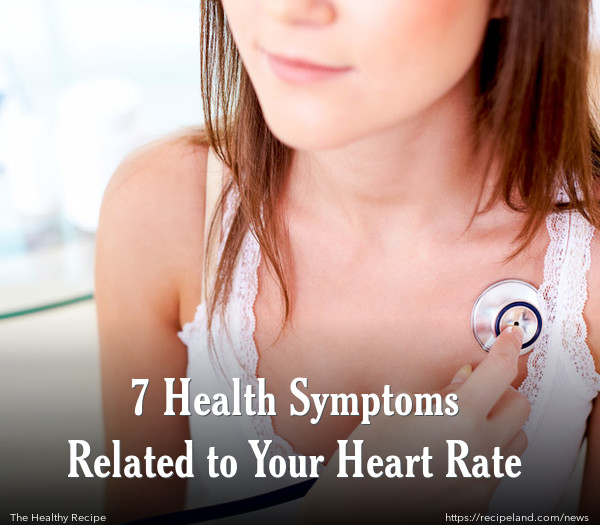You know you’re alive when you can feel your pulse, or the beating of your heart. But, knowing what it means to your overall health and how your heart rate varies can be important.
Pam R. Taub, a board-certified cardiologist and associate professor of medicine at the University of California, San Diego, states, “What’s even more important than a single heart beat is the trend.”
According to Taub and other experts, a healthy resting heartbeat is somewhere between 60-85 beats per minute (bpm). Up to 100bpm may be okay for many people. But, if you are well above or below that rate, then you might want to consult your doctor because it might be your body’s way of telling you there’s a problem.
Check out these 6 possible problems and what to do about them.
1. You are under too much stress.
Increased stress can affect your heart beat, generally by making it faster. If you are under chronic stress, your resting heartbeat may be higher, increasing your risk of heart attack or stroke. Work on ways to increase relaxation and lower your heart rate for better health and lower risk of heart attack and stroke.
2. You may have diabetes.
It is not clear whether a higher heart rate causes diabetes or whether diabetes causes a higher heart rate. Either way, recent studies have shown these two factors to be correlated. People who develop diabetes tend to be less active and are already more likely to have coronary heart disease and high blood pressure, which puts a significant strain on the heart.
Taub states, “There are a lot of studies that link higher heart rate, especially in patients with diabetes, to more adverse outcomes.”
3. You have an electrical problem in your heart.
The heart has its own electrical system comprised of a variety of structures that send signals to keep it beating properly. A slow heart rate may be an indication that the electrical system may not be working well. This can usually be detected by a simple EKG test.
4. You’re too inactive.
You need to exercise your heart to keep it healthy. After all, it is a muscle and needs to be worked out just like any other muscle. Taub says, “Inactivity and obesity often contribute to an elevated resting heart rate.” This happens because your heart must work more to pump your blood when you are out of shape.
And, the bigger your body is, the greater the area that needs to be covered. This can be one problem that will give you a faster heart rate. Getting enough exercise can usually lower your heart rate. Many serious athletes can show resting heart rates in the 50s.
5. Medications and drugs.
When you take certain medications, your heart rate may be affected. According to Taub, “Beta blockers and calcium channel blockers are the main ones that can lower a heart rate.” These medications can slow your heart rate.
Although this is not always a problem, it’s important to consult with your doctor if you are concerned. When you get too much caffeine, you can have a very rapid heart rate. Caffeine is often an ingredient in headache medicine, and can also be found in many foods and drinks.
Taub explains the problem, “Some people are extremely sensitive to caffeine, so they drink a coffee or an energy drink, and they immediately get elevations of their heart rate.” Paying attention to how much caffeine you take in, and cutting back a bit can help.
6. You are dehydrated, or over-hydrated.
Either of these conditions will affect your heart rate. Your body has many minerals that have an electric charge, these are known as electrolytes. If you take in too much water, or not enough water, you can end up with an electrolyte imbalance, which can affect your heart rate and even cause irregular heart rates (arrhythmias).
Taub clarifies, “If your potassium, calcium, or magnesium levels are very low, that can induce arrhythmias [abnormal rhythms], which can manifest as a higher heart rate.”
7. You have thyroid problems.
When your thyroid is over active or underactive, your body will have difficulty functioning effectively, and this could cause your heart rate to be out of whack.
A low thyroid level can be a sign of an underactive thyroid (hypothyroidism), while a faster heart rate can be indicative of an overly-active thyroid (hyperthyroidism). These are conditions that can be easily detected through a blood test.
Paying attention to your heart rate is important, and can help you stay on top of any potential health problems or risks that you might be facing, or that you can prevent.










Comments